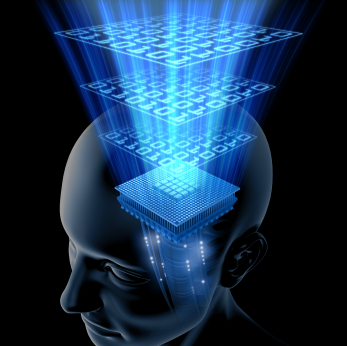Adrenal Glands and Stress

The adrenal glands, located on top of the kidneys, prepare the body for quick action. Quick action of the body would require:
Extra sugar for energy production
Extra oxygen for energy production
Increased blood flow to and away from muscles
Increased sensory perception
Increased reflexes and nerve response
Maximal muscle strength and activity
Routing of resources for maximum effect
If you look at the above, you have a pretty good idea of what the hormones of the adrenal gland affect. The adrenal glands produce hormones that regulate the sugar in the blood and cells called glucocorticoids. The adrenal glands produce hormones which affect the lungs so that extra oxygen may be absorbed. Adrenaline from the glands causes the bronchioles of the lungs to expand for extra air flow into the lungs. Cortisone and cortisol are produced which affect the lung tissue itself. When babies are born prematurely, they are given cortisone to help their lungs develop. One sign of adrenal exhaustion happens to be frequent respiratory infections.
Adrenaline also causes the arteries to the muscles and heart to expand so that more oxygen, sugar and minerals are transported to the muscles and toxic waste from muscle activity can leave the area.
Adrenaline causes heightened senses. Pupils dilate to become more sensitive to light. Sensory nerve regulation is turned up so that we are more sensitive to sounds, smell and touch. The voluntary motor nervous system is also heightened for quicker reflexes and response.
Vital minerals necessary for nerve conduction and muscle function, especially potassium and sodium (and calcium), are delivered to the proper areas for optimal function by the mineral corticoid adrenal hormones. Sweat glands are turned up for temperature regulation by adrenaline.
Since quick action in response to environmental threats may be the determining factor between life or death of the entire organism, the body seeks to route the maximal amounts of internal resources in this direction to provide the utmost chance for survival. It does this by shutting down systems In the body that do not contribute to the quick action response. It puts these on “hold” until safer conditions are present. This includes digestion, growth and healing and the immune system. Now we have an explanation why cortisone (an adrenal hormone) is used to treat inflammation of all kinds – inflamed joints, inflamed skin, inflamed bowel, etc. Inflammation is part of the healing response. We can also see a problem with its chronic use. Since it stops healing, it enhances tissue breakdown. It will also allow you to get infections easier. Another thing that the adrenal gland quick action response does is shut down parts of your brain switchboard with regards to memory. Chronically stressed people can relate to this.
Which brings up a very relative topic, our present time environment. Obviously, the environment that we subject our bodies to is not the same as it was one million years ago. Stress in the past consisted of not getting eaten or beat up. This required quick physical action as response. Today’s stress is different. We perceive a dangerous environment yet it is a different type of danger. We have deadlines and timetables, so many things to do in so little time, and mental and verbal assaults. Somewhere along the line hitting your boss become socially unacceptable. We are now eliciting chronic stress responses in the body yet the associated physical activity does not occur. Everything is in place for physical activity, then it does not occur. Not only are vital systems shut down, now everything has to be shunted back to where it came from at great energy response. It is very hard on the body. Healing cannot occur under chronic stress and indeed those people under chronic stress have bodies that break down more and age quicker. Furthermore, adrenal hormones come from cholesterol. It has been proposed that if the body is under stress, more cholesterol is generated for both hormone production and as a possible fuel source. This could possibly be an underlying factor related to high cholesterol. Anti cholesterol drugs, by the way, greatly interfere with the adrenal gland functioning because they prevent the formation of adrenal hormones.
Is it any wonder that doctors see a great many patients coming into the office with exhausted adrenal glands? Based on what we now know, people with adrenal gland problems might display the following problems:
Blood sugar problems Heart regulation problems such as irregular or
Breathing problems rapid heart beat
Frequent lung infections Hyper sensitivity to sounds, smells and light
Circulatory abnormalities Restless or fidgety, jumpy
Abnormal sweating Sodium and potassium imbalances – cramps
Decreased immunity to infection Lack of healing and degeneration of tissues
Abnormal or difficult digestion Chronic inflammation
Slow and foggy brain function Extreme fatigue
Obviously, full treatment of adrenal malfunction would include lifestyle changes. However, with CEMT we can address factors that may be interfering with normal adrenal function and provide exact nutritional support to allow the maximum possible function of the adrenal gland for the stresses that are imposed. If you or someone you know is displaying symptoms of adrenal fatigue or malfunction, call (260) 459-6160 (Ft. Wayne) or (773) 929-3964 (Chicago) for an appointment.
David A Murdock, DC











